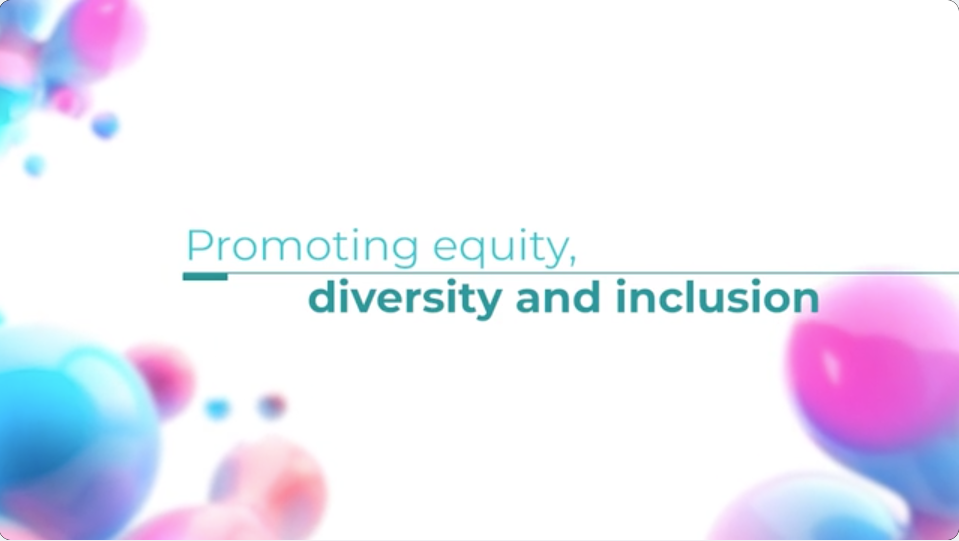Equity, diversity and inclusion
The next video is about a group of researchers who had the courage to confront some difficult questions. Dr Carina Bossu of the Open University’s Institute for Educational Technology tells the story of how her team took the challenges of equity, diversity and inclusion seriously. As you watch, think about the measures Carina’s team implemented, and whether these measures could apply in your own setting.

Transcript: Promoting equity, diversity and inclusion
My name is Carina Bossu. I'm a senior lecturer in academic professional development with the Institute of Educational Technology here at the Open University. I'm also a lead of the equity, diversity and inclusion project within the Go-GN network.
The Go-GN network, which is the global OER graduate network, as the name suggests, is a network to support researchers in open education in general, several fields of open education.
They have their own supervisors, they are enrolled in their own institutions, but they come to us for additional support.
We provide webinars, resources, and we have also our annual meeting where we bring these researchers together to be part of the broader network.
The idea of, you know, creating a project specifically focused on EDI, equity, diversity and inclusion, came because, you know, there is an assumption that because we work in open education or we work in open research, there is an assumption that the word ‘open’ means equitable, diverse and inclusive - and it's not always the case.
For example, in Go-GN, the majority of our members are from the Global North, they are white and they speak English.
We realised that, and decided then to understand what could be a Go-GN that is more inclusive. So we applied for an additional grant and we set off to talk to people from the Global South. We went first in Africa and spoke with some experts there, and that first Phase, that's what we called it, was then used to generate the first guidelines for EDI in Go-GN, but also informed Phase 2 of the project, which was in Latin America, where we then went there to speak with experts in open education and find out - what would look like a more equitable, diverse and inclusive network?
After these two Phases, we then set out to start implementing the recommendations we received from participants.
So we have now implemented a lot of the recommendations into Go-GN, but we have also published that in forms of guidelines.
We have a paper, we have blog posts.
So just an example of some of the recommendations we received from experts is that, for example, in Go-GN, all the resources we provide are in English. And they wouldn't be able to read that. So what we did, we translated a lot of those resources into Portuguese and Spanish. We have plans now to translate more resources into different languages.
Another way we try to be more inclusive is to provide on-demand translation during our webinar. So there is a software that can help us with that. So we are looking into this.
We are now offering scholarships to researchers to help them with their research, but also to help with their career progress, and we give priority to Global South candidates.
EDI now is not a separate project, it is part of Go-GN, so it's one of our strengths. And this means that the work that we do will always have an EDI focus, so then the work that we do also will help everyone that can benefit from it.
Use the text box to write about the steps Carina and her colleagues at the Go-GN Network took. Could you do something similar in your own organisation?
Allow about 10 minutes for this.
When you are ready, press 'reveal' to see our comments.
Discussion
Carina explains that she and her colleagues recognised a lack of diversity within their network. Once they had realised this, they sought research funding to address the issue. They went directly to people in the Global South, seeking their opinions about how the network could become more diverse and inclusive. These people pointed out barriers to diversity and inclusion, and challenged the researchers to address them. Their ideas are now being implemented, resulting in lasting change.
Diversity
